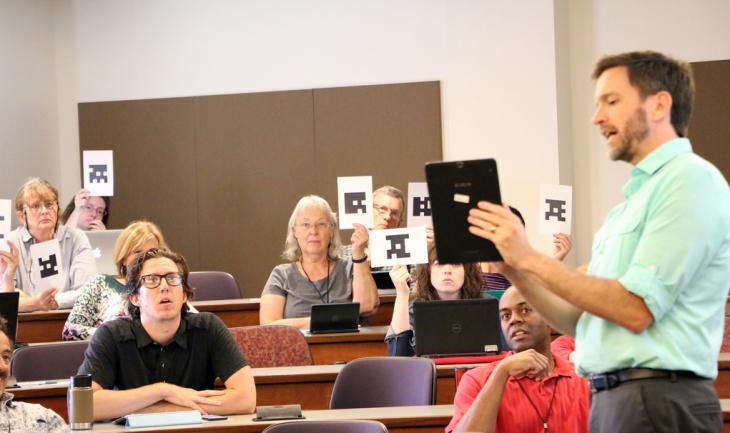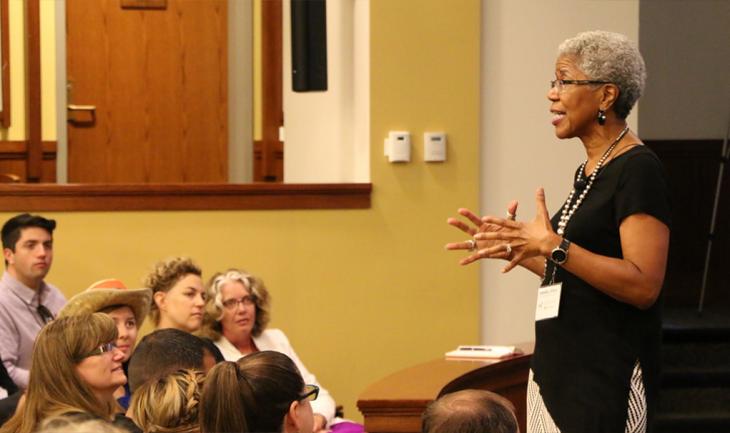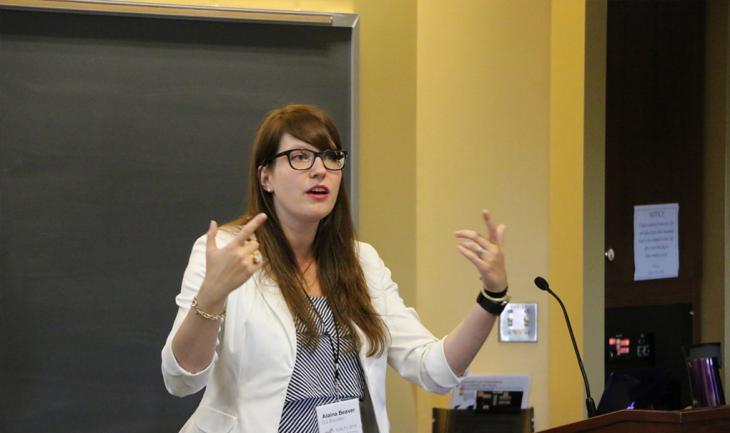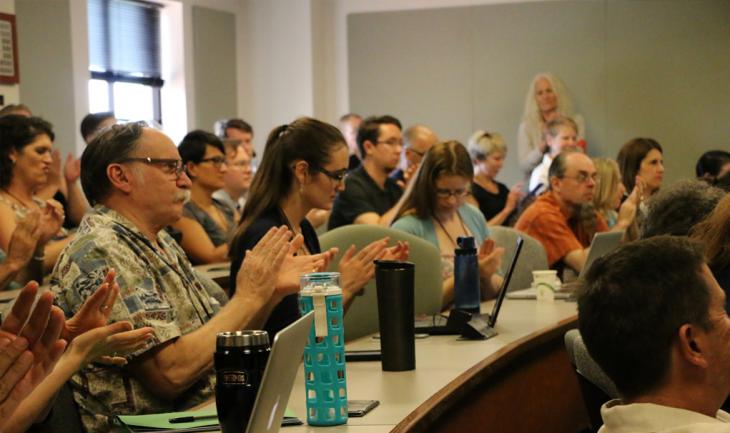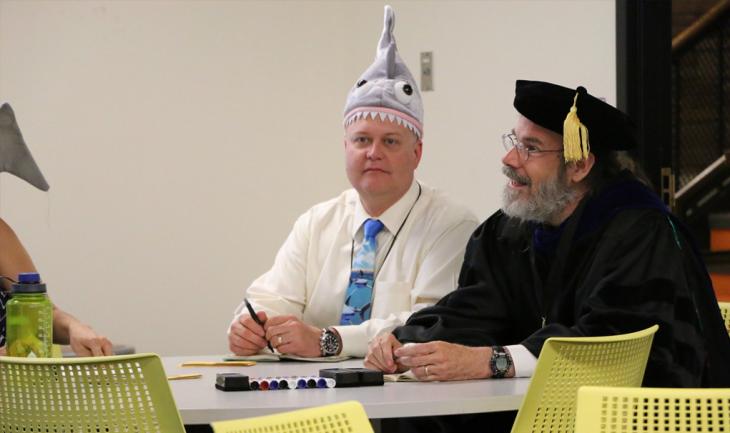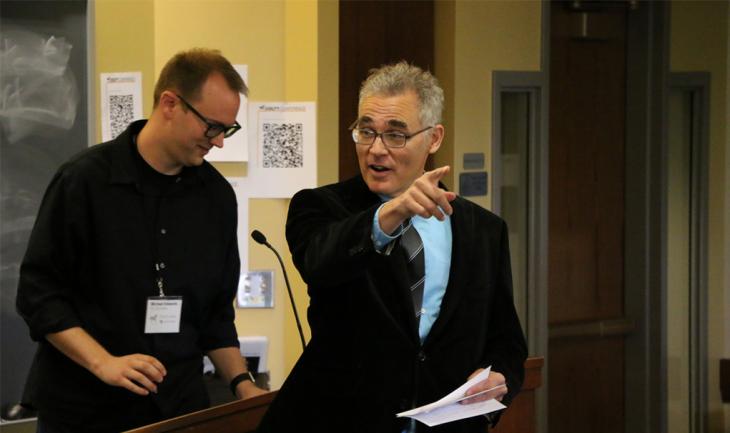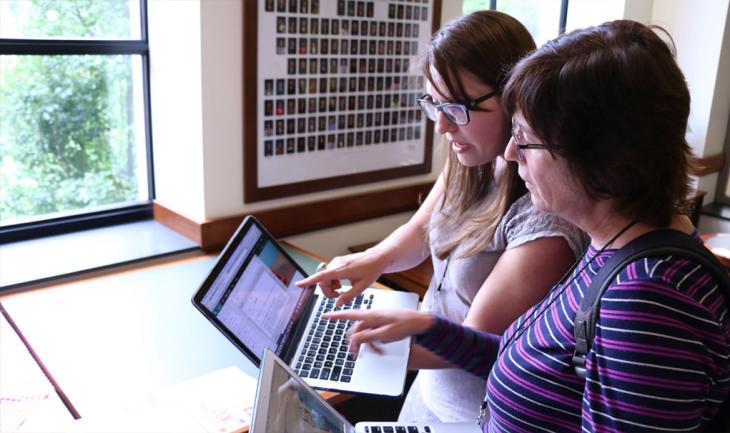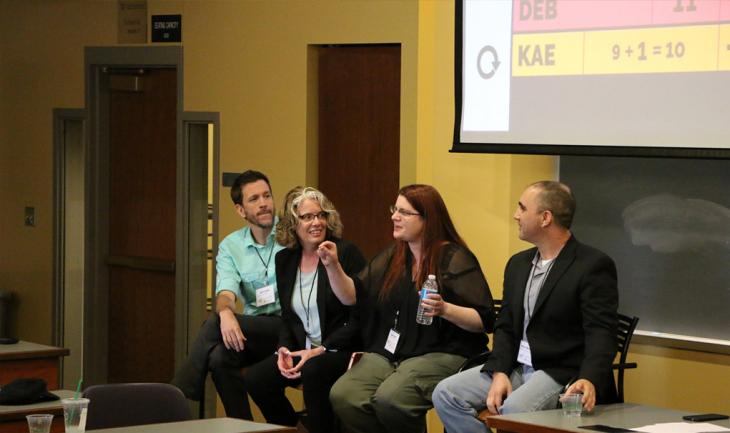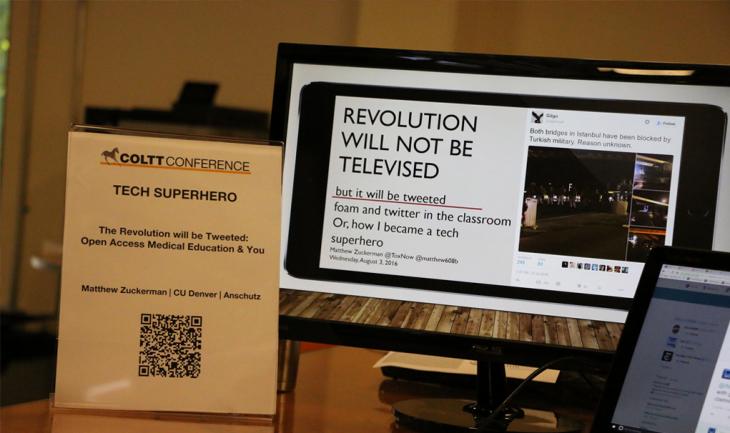From Pokémon to MOOCs, COLTT races between tech topics
In the summer of 2016, a discussion of technology would be incomplete without a mention of the ubiquitous game Pokémon GO. That’s true even when the tech focus is education, as it was during the Colorado Learning and Teaching with Technology conference, or COLTT.
“I tried Pokémon GO and I loved it,” said keynote speaker Brenda Allen. “But then I got home and I deleted it. I said to myself, ‘This will not control my life!’”
Allen, vice chancellor for diversity and inclusion and professor of communication at the University of Colorado Denver | Anschutz Medical Campus, attracted a large audience during the first of COLTT’s two days, Aug. 3-4 at Wolf Law on the CU Boulder campus. She was among the 450-plus attendees and presenters from across the CU system and other colleges and universities throughout the state.
In her talk, Allen asked attendees to consider the promise of technology – efficient communication, precision delivery of information, improved understanding and quality of life – and to be aware of barriers that block that promise.
“There are barriers of awareness,” Allen said. “There is information we can’t access because we don’t know about its existence in the first place. In my mind, there also are barriers to the awareness of the existence of certain tools and technology that we might use.”
Her wide-ranging talk also noted a topic that has trended up and down in recent years, MOOCs. “Although the MOOCs have not taken off as people seemingly thought they would, they’ve shifted the conversation about pedagogy and how to assess student learning,” Allen said.
In one of the conference’s lively panel sessions, educators shared lessons from their own experiences in developing MOOCs. The title of the talk: “Put Down Your Forks, Folks. MOOCs Aren’t Done Yet!”
“I’m passionate about what I do,” said CU Denver’s John Byrd, an economist. “I wanted to share it and leave a handprint. I wanted to have a bigger audience than I could get in our MBA program.
“Our MOOC has got a huge social side to it. I would love to have those people who go through the course to come back and share their ideas and teach the course. There are incredible opportunities here. … MOOCs can be a lot more than educational – they can be an enormous source of social good and social change.”
Roger Martinez of UCCS said his work on developing a MOOC on the study of manuscripts from the middle ages has given him new perspective on the speed at which education is traveling.
“With MOOCs, I can see that what I taught in 2014 doesn’t work in 2016,” Martinez said. “Videos of lectures have to be, instead of 30 minutes, five to seven minutes. That might be disturbing to a lot of academics – it’s disturbing to me – to think that all that content went out the window. It’s not about that; it’s about delivering content in compact pieces. I’m being much more choosey about the readings I’m providing students. The MOOC has fine-tuned by thinking in terms of understanding that I have limited time with my students.”
Other COLTT sessions took irreverent turns while maintaining sharp focuses on thought stimulation. For the popular Shark Tank, COLTT Conference Executive Director Deborah Keyek-Franssen enticed competitors with $750,000 in “shark dollars,” requiring the educators to pitch their disruptive technology ideas to potential investors and Professor Curmudgeon, played by Michael Lightner, vice president for academic affairs. And in the Academic Pundit Showdown, CU Denver’s David Thomas played emcee for a rapid-fire, game-show-style discussion of gamification and robots infiltrating higher education.
At dozens of other sessions, faculty and staff shared tips, tricks and tools, suggestions for the newest apps and online resources, and best practices for making the most of technology in higher education. During breaks, there was time for networking – and perhaps a walk around campus to catch ’em all on Pokémon GO.


